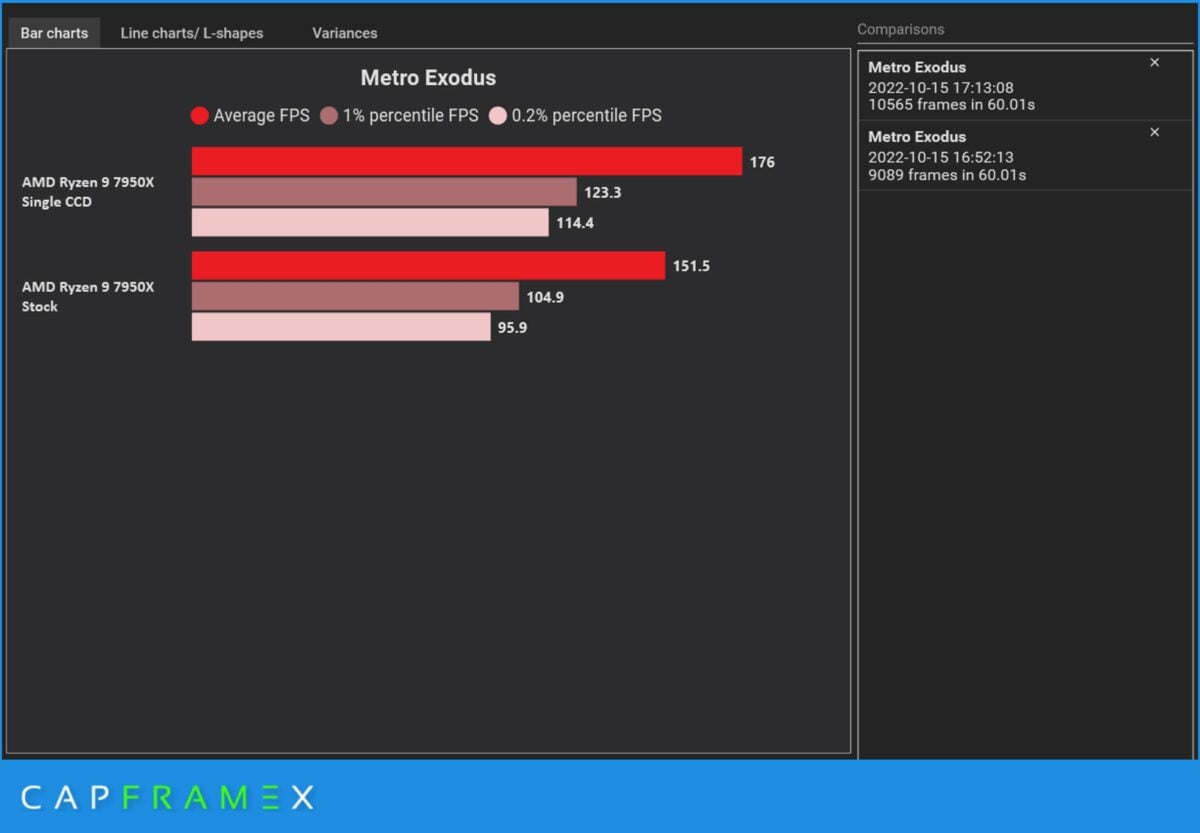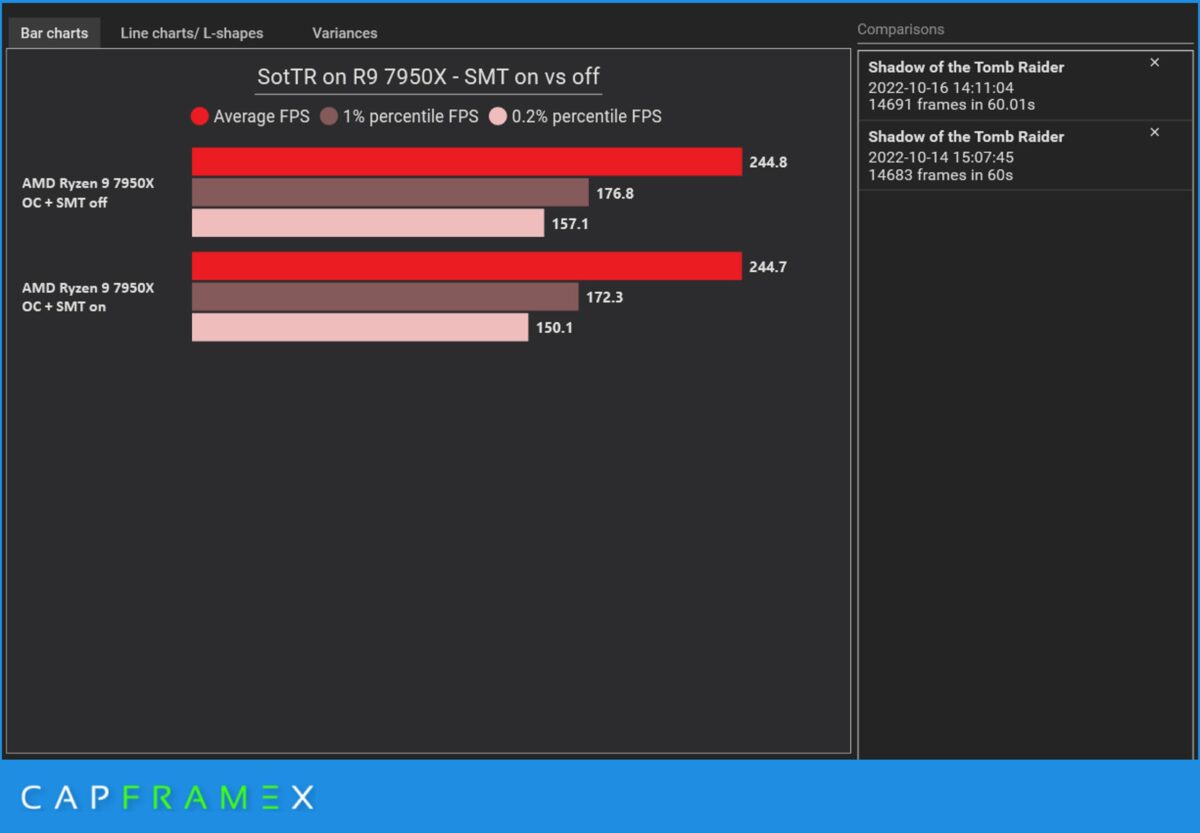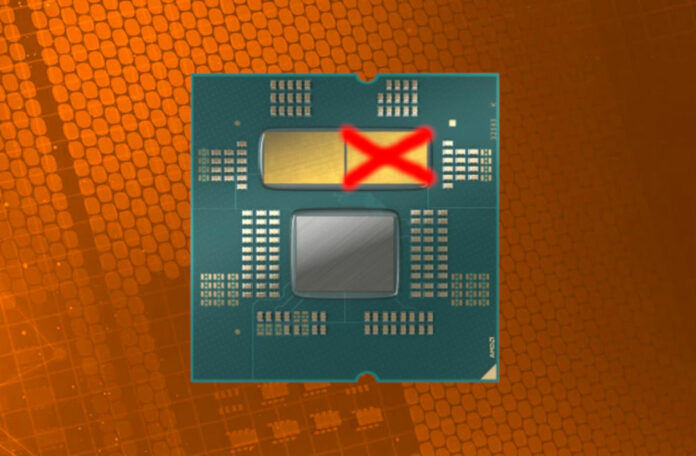AMD’s new top-of-the-line Ryzen 9 7950X 16-core processor sure is a beast, but recent research suggests it delivers 16 per cent more frames per second in Metro Exodus when operating via a single-CCD (Core Complex Die) 8-core arrangement.
Enthusiast CapFrameX has noticed that when one CCD is disabled on a machine running Windows 11 22H2, Ryzen 7950X pushed as much as 16 per cent higher average frame rates in Metro Exodus. This could be caused by multiple factors, like better-clocking active CCD, a Windows scheduling problem, extra power available, or more temperature headroom left by eight inactive cores. Knowing AMD intends for Ryzen 7000 Series CPUs to push as high as possible so long as they stay below the 95°C mark, we can assume this is the major factor for this discrepancy.

As a reminder, each CCD has a maximum of eight Zen 4 cores and 16-threads using AMD’s SMT (Simultaneous Multithreading). The newly added graphic segment, which incorporates two RDNA2 cores, is located inside the I/O die
CapFrameX has also tested Shadow of the Tomb Raider with SMT on than off seeing no impact other than what could be attributed to test-run variations. This is weird for a game known for liking to spread its load over many threads.

The one percentile figure represents FPS during the slowest one per cent of frames, and the 0.2 percentile, you guessed it, the slowest 0.2 per cent of total rendered frames.
At any rate, Ryzen 9 7950X should be purchased first and foremost for work-related tasks needing every bit of horsepower – time is money. For gaming, however, you shouldn’t look further than a Ryzen 7 7700X, or a 5800X3D, if you really need more frames.
If you are interested in this productivity beast, we have put for you an extensive review comprising a variety of tests. Take a gander.


